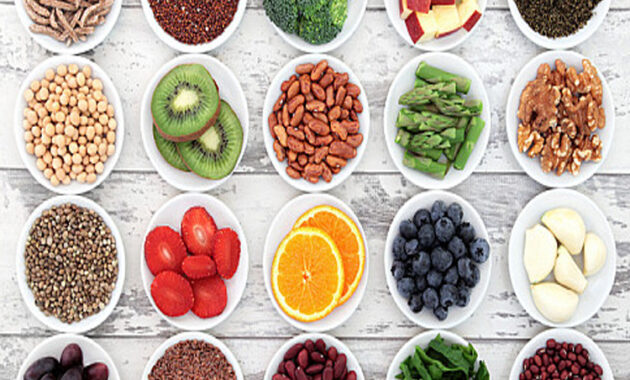In today’s quest for healthier eating, superfoods have emerged as nutritional powerhouses renowned for their dense concentration of essential vitamins, minerals, and antioxidants. These foods, which include berries, leafy greens, and oily fish like salmon, offer not only superior nutritional benefits but also potential health advantages ranging from boosting immunity to promoting heart health and improving skin vitality. This article delves into the world of superfoods, exploring their unique nutrients, health benefits, and practical ways to incorporate them into a balanced diet. Understanding the role of superfoods can empower individuals to make informed dietary choices that support overall wellness and vitality.

Benefits of Superfoods
Superfoods offer a multitude of health benefits due to their rich nutritional profiles and unique compounds that contribute to overall well-being.
Nutrient Density
Superfoods are packed with essential vitamins, minerals, antioxidants, and phytochemicals in concentrated amounts compared to regular foods. These nutrients play crucial roles in supporting various bodily functions, from boosting immunity to enhancing cellular repair and promoting optimal organ function.
Health Benefits
Consuming superfoods regularly can lead to several health advantages. For instance, blueberries are known for their high antioxidant content, which helps combat oxidative stress and inflammation linked to chronic diseases like heart disease and cancer. Similarly, salmon, rich in omega-3 fatty acids, supports heart health by reducing inflammation and improving cholesterol levels.
Key Superfoods and Their Benefits
Blueberries
Known for their high antioxidant content, blueberries help combat oxidative stress and inflammation. They support brain health, improve memory, and may reduce the risk of age-related cognitive decline.
Salmon
Rich in omega-3 fatty acids, salmon promotes heart health by reducing inflammation, lowering blood pressure, and improving cholesterol levels. Omega-3s also support brain function and may reduce the risk of depression.
Kale
A nutrient powerhouse, kale is packed with vitamins (A, C, K), minerals (iron, calcium), and antioxidants (flavonoids, carotenoids). It supports bone health, aids in digestion due to its fiber content, and offers anti-inflammatory properties.
Including superfoods in your diet
Incorporating superfoods into your diet can be a straightforward and rewarding way to boost your nutritional intake and support overall health.
Practical Tips
Start by identifying superfoods that appeal to your taste preferences and dietary needs. Introduce them gradually into your meals to ensure variety and enjoyment. For example, adding blueberries to your breakfast cereal or yogurt can provide a daily antioxidant boost, while incorporating kale into salads or smoothies can increase your intake of vitamins and fiber.
Recipe Ideas
Explore recipes that feature superfoods as key ingredients. For instance, prepare a quinoa salad with avocado, spinach, and cherry tomatoes for a nutrient-packed lunch. Experiment with chia seed pudding for a nutritious and satisfying dessert or snack option. These recipes not only enhance flavor but also maximize the health benefits of superfoods.
Potential Considerations
When incorporating superfoods into your diet, it’s important to consider several factors to ensure balanced nutrition and practicality.
Availability and Cost
such as exotic berries or specialty seeds, may be more expensive or less readily available depending on your location. Consider alternatives or seasonal options that provide similar nutritional benefits without straining your budget.
Variety
While superfoods offer concentrated nutrients, it’s essential to maintain a diverse diet that includes a wide range of foods. Incorporate different types of superfoods to benefit from their unique nutritional profiles and avoid potential nutrient deficiencies.
Allergies and Sensitivities
Be mindful of any food allergies or sensitivities you may have when selecting and consuming superfoods. Consult with a healthcare professional or nutritionist if you’re unsure about potential reactions or dietary restrictions.
Preparation and Storage
Some superfoods may require specific preparation methods or storage conditions to maintain their nutritional integrity. Follow recommended guidelines to maximize their health benefits and ensure food safety.
conclusion, explores the growing popularity and health benefits, emphasizing dense concentrations of essential nutrients such as vitamins, minerals, and antioxidants. These foods, such as blueberries, salmon, and kale, offer significant health benefits ranging from boosting immunity to supporting heart health and increasing skin vitality. Practical tips are provided for incorporating superfoods into the daily diet, suggesting gradual integration and a variety of recipe ideas to maximize their nutritional benefits. The report also highlights important considerations such as cost, availability, and potential allergens when adopting a diet rich in superfoods. Overall, understanding and consuming superfoods can empower individuals to make informed food choices that improve overall health and vitality in a sustainable way.